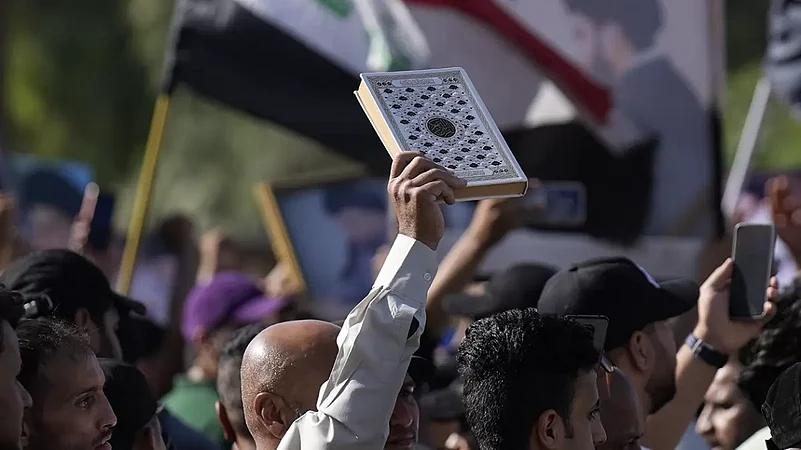Thousands of people took to the streets in several Muslim-majority countries on Friday to express their outrage at the desecration of a copy of the Quran in Sweden. The protests followed a tumultuous scene at the Swedish Embassy in Iraq on Thursday when demonstrators occupied the compound for several hours and set a small fire.
In Iraq, Lebanon, and Iran, protests took place after the weekly prayers and remained relatively controlled and peaceful. However, in Baghdad's Sadr City, some protestors associated with influential Iraqi Shiite cleric and political leader Muqtada al-Sadr participated in the attack on the Swedish Embassy. They brandished Qurans, burned the Swedish flag, and the LGBTQ rainbow flag while chanting, "Yes, yes to the Quran, no, no to Israel," as AP reported.
Iraqi Prime Minister Mohammed Shia al-Sudani had urged both protesters and security forces to ensure peaceful demonstrations. Despite the calls for peace, tensions remained high as protestors in the southern suburbs of Beirut, Lebanon, and in Iran, marched with copies of the holy book, chanting slogans expressing their condemnation.
Hezbollah leader Hassan Nasrallah called on Muslims to demand their governments expel Sweden's ambassadors, while Iraq cut diplomatic ties with Sweden on the same day as the embassy incident.
The demonstrations were triggered by a protest in Sweden, where an individual of Christian origin, now self-described as an atheist, threatened to burn a copy of the Quran. Although the man eventually kicked and stood on the holy book outside the Iraqi Embassy, the right to hold such protests is protected by the constitution in Sweden, and blasphemy laws were abandoned in the 1970s.
The protests in Iraq resulted in some arrests, and the Swedish Foreign Ministry conveyed their disapproval of the embassy incident to the Iraqi charge d'affaires.
The Quran desecration incident was the second involving the same individual in Sweden, known as Salwan Momika. Last month, he burned a Quran outside a Stockholm mosque during the Muslim holiday of Eid al-Adha, leading to widespread condemnation in the Islamic world.
Quran burnings have historically sparked protests across the Muslim world, some turning violent. In response to the recent incident, the Taliban suspended all activities of Swedish organizations in Afghanistan, and similar protests have complicated Sweden's efforts to join NATO in Turkey.
Leaders in several Muslim-majority countries have condemned the desecration of the Quran and summoned diplomats from Sweden to express their outrage. Iranian Foreign Minister Hossein Amirabdollahian wrote a letter to the United Nations secretary-general, and Pakistani Prime Minister Shehbaz Sharif called on the Organisation of Islamic Cooperation to play a historic role in expressing Muslim sentiments and stopping such actions.


























